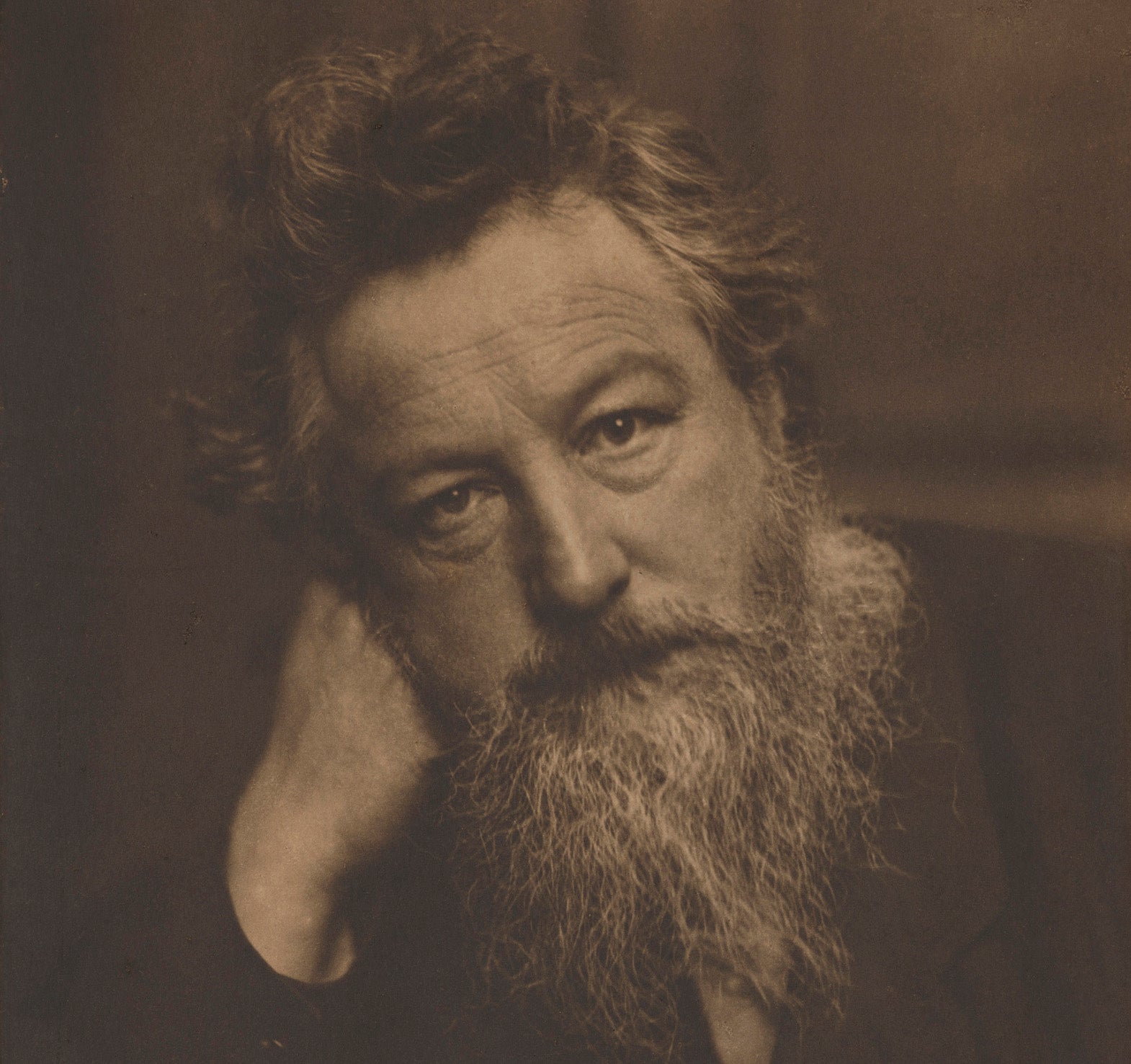Book of a lifetime: William Morris: Romantic to Revolutionary by EP Thompson
From The Independent archive: Sheila Rowbotham on a pin-sharp interogation of socialism refracted through the life of one of its key figures

In 1962, my university tutor, Richard Cobb, the iconoclastic historian of the French Revolution, sent me to see his friends Dorothy and Edward Thompson, mumbling something about their work on Chartism. Memory is short when you are just 19 and it seemed to me then that Conservatism – with a large and small “c” – had covered the globe with a gloom of blue since the beginning of time. The Thompsons’ household, perched on a Halifax hill was, in contrast, a magical Tardis which enabled you to travel to debates and struggles of long ago. His The Making of the English Working Class was still in the making, but sitting amid the piles of papers and books, I discovered William Morris: Romantic to Revolutionary.
Thompson, who delighted in quotes, takes several hundred pages to situate Morris in the Romantic and aesthetic rejection of capitalism: “We have profoundly forgotten everywhere that cash-payment is not the sole relation of human beings” (Thomas Carlyle). “There is no Wealth but Life” (John Ruskin). The sharpness of those critics of capitalism, who could recall other ways of organising work and shaping human relations, is startling. Their moral and aesthetic revolt against the factory system and its values rang in my ears when I came to read Marx. As Morris is drawn into the socialist movement, Thompson’s account becomes dense with detail. He presents the boundless hopes of the early 1880s, followed by the dissension, the weariness and the exhaustion. At one level this is an epic tale, at yet another, it is thought spiralling through action.
Thompson crystallises ideas in movement; he sculpts them from experience. Cherishing craft against the machine’s power to dictate the rhythm of work, Thompson’s Morris recognises that necessity provokes revolt. But he is aware that class hatred does not automatically translate into an opposing impression of what might be. Both men reach out to the edge beyond what Morris called “Nowhere”. Thompson treads warily in the final section on “Necessity and Desire”. As a communist he knew the dangers of utopianism and lets Morris put the case for visions of what might be. Reflecting on the eventual break up of European capitalism, “without a conscious effort at transformation”.
Morris feared confusion and suffering. Depressed by how many socialists saw only “through the murky smoked glass of the present condition”, he wanted instead “a life in which every human being should find unrestricted scope for his best powers and faculties”. Thompson’s Morris engages with a conundrum even more relevant today. How might we shift from capitalist society as it is to a sustainable and pleasurable “something else”? His book reveals a dynamic-yet-embedded way of writing the history of socialism, and an interrogation of what socialism might be.
Join our commenting forum
Join thought-provoking conversations, follow other Independent readers and see their replies
Comments
Bookmark popover
Removed from bookmarks